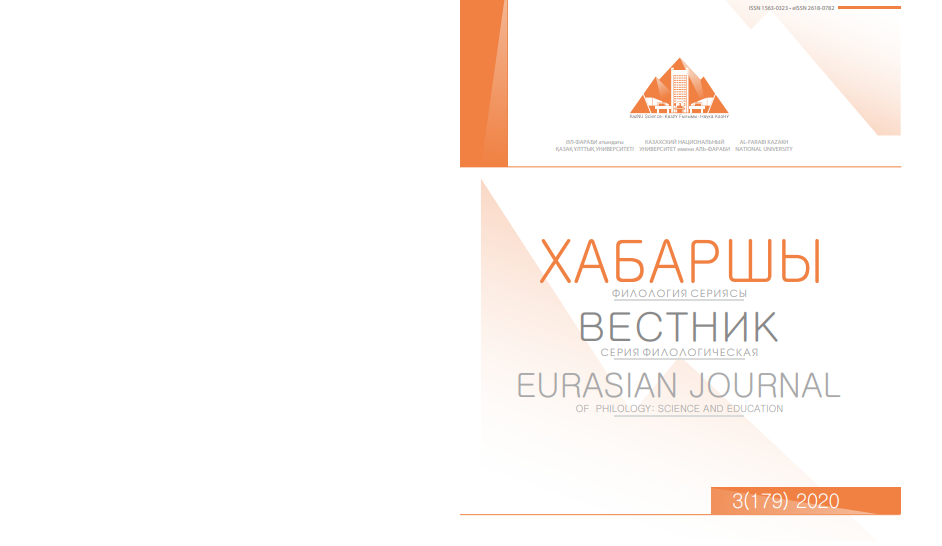Translation features of the appeal words of a national character in the poems of Magzhan Zhumabayev (Turkish, Russian and English languages)
DOI:
https://doi.org/10.26577/EJPh.2020.v179.i3.ph2Аннотация
The article discusses the features of the translation of words of appeal of a national character in the poetry of the Kazakh akyn Magzhan Zhumabaev into Turkish, Russian and English. More precisely, an analysis has been done on the basis of the linguocultural aspect of the translation of linguistic units used by the author, and the Kazakh family’s institute models are inherent in its linguistic picture when children are treated with love and affection in a metaphorical way by the names of young cattle (my lamb, kid, calf, foal , camel). Conclusions are drawn on their reflection in the language picture of another language, related to Turkish, unrelated, but rooted in the Kazakh life and society, regional Russian language and world English. The analysis is based on the works of famous foreign scientists whose work is highly cited in this direction. These are E. Davies (2003), translation methods of culture-specific items, and L. Venuti (1995), strategies for translating culture-specific items as domestication and forenization. That is, according to the translation methods, the ratio of the strategy is determined, how much the words of addressing the national flavor to the host culture of the translated text were adapted or the original essence was preserved. The article uses Turkish translations of the famous Turkish scholar of the poet and the translator of his work, Farhat Tamer and Auezhan Kodar in Russian. An analysis of the translation into Turkish is accompanied by the comments of the translator based on the material of a personal live interview. Also, translations of a poem that are not in Russian or English were translated and proposed by the authors themselves. Although they cannot be considered a high poetic translation, they can very well serve as a reference, additional material or an assistant for translators who will take up this work in the future.






